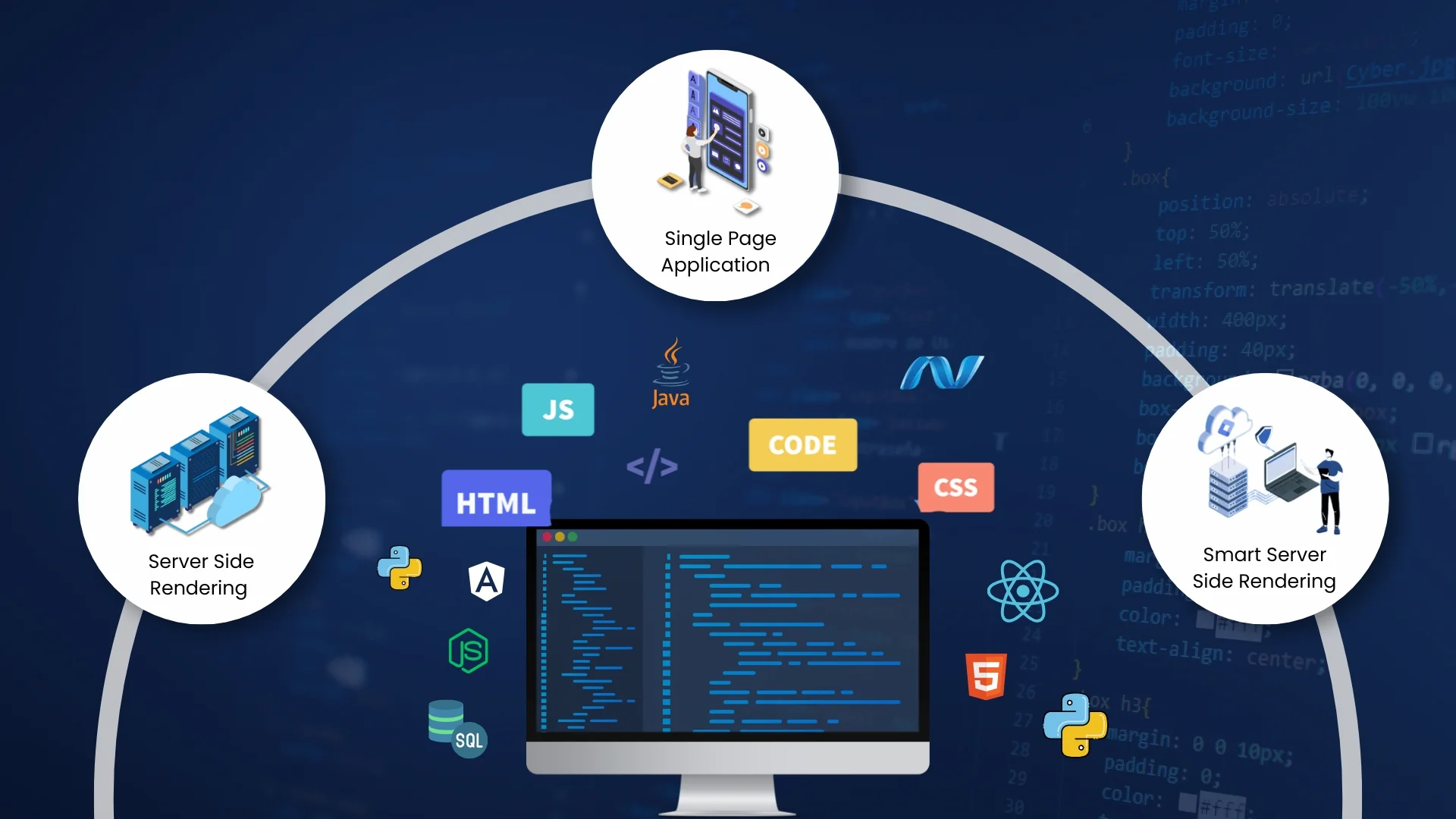In an era where customer preferences shift rapidly, retail businesses must stay agile and responsive to succeed. Enter the retail cloud—a technology that is revolutionizing how retailers operate by providing scalable and efficient solutions. If you’re a retail manager, IT professional, or e-commerce entrepreneur, understanding the role of cloud computing in retail operations is crucial for staying ahead. In this blog, we’ll explore how leveraging the retail cloud can optimize your operations, enhance customer experiences, and drive growth.
What is Cloud Computing in Retail?
Cloud computing has become a game-changer for many industries, and retail is no exception. In simple terms, cloud computing involves using remote servers hosted on the internet to store, manage and process data. This eliminates the need for physical servers and offers flexibility, scalability and cost-effectiveness. For retail operations, the retail cloud provides a framework where retailers can store data, run applications and access computing resources seamlessly.
Think of the retail cloud as a virtual toolbox for your business. It allows you to manage inventory, customer data and sales analytics without the constraints of physical infrastructure. This means you can quickly adapt to seasonal demands, expand your product offerings, and improve your customer service—all while reducing operational costs.
Table of Contents
- What is Cloud Computing in Retail?
- Benefits of Retail Cloud Computing
- Streamlining Inventory Management
- Personalizing Customer Experiences
- Enhancing Data Security and Compliance
- Facilitating Agile Decision-Making
- Driving Innovation with Cloud-Based Solutions
- Selecting the Right Cloud Provider
- Future Trends in Retail Cloud Computing
- Conclusion
- Why Sparity?
- FAQs
Benefits of Retail Cloud Computing
The retail cloud offers numerous benefits that can transform your business operations. First and foremost is scalability. Unlike traditional systems that require significant investments to expand, cloud solutions allow retailers to scale resources up or down based on demand. This means no more worrying about purchasing hardware during peak seasons or letting it sit idle during slower months.
Another significant advantage is cost-efficiency. With the retail cloud, you only pay for what you use, eliminating the expenses associated with maintaining and upgrading physical infrastructure. This pay-as-you-go model enables retailers to allocate resources more effectively and invest in other areas of growth, such as marketing and product development.
Lastly, cloud computing enhances collaboration and accessibility. Retailers can access critical data and applications from anywhere with an internet connection, allowing teams to collaborate seamlessly across locations. This is especially valuable for e-commerce entrepreneurs managing multiple online stores or retail managers overseeing several brick-and-mortar locations.
Streamlining Inventory Management
Efficient inventory management is the backbone of any successful retail operation. The retail cloud provides tools and technologies to optimize this process, ensuring you have the right products at the right time. With cloud-based inventory management systems, you can track stock levels in real-time, automate reordering, and gain insights into sales trends.
For instance, imagine having a centralized inventory dashboard that updates automatically with every sale or restock. This not only reduces the risk of overstocking or stockouts but also frees up your team to focus on more strategic tasks. Retail managers can make data-driven decisions to optimize inventory turnover and reduce carrying costs, ultimately improving profitability.
Furthermore, cloud-based inventory systems integrate seamlessly with point-of-sale (POS) systems, providing a unified view of sales and inventory data. This integration enhances accuracy and efficiency, enabling retailers to respond quickly to changing demand and customer preferences.
Personalizing Customer Experiences
In today’s competitive retail landscape, providing personalized customer experiences is essential for building loyalty and driving sales. The retail cloud empowers retailers to collect and analyze vast amounts of customer data, enabling them to tailor their offerings to individual preferences.
Cloud-based customer relationship management (CRM) systems allow retailers to track customer interactions, purchase history and preferences. By leveraging this data, retailers can deliver targeted marketing campaigns, personalized product recommendations, and tailored promotions. This level of personalization not only enhances the customer experience but also increases conversion rates and customer retention.
Additionally, the retail cloud enables retailers to engage with customers through multiple channels, including social media, email and mobile apps. This omnichannel approach ensures a consistent and seamless experience, regardless of how customers choose to interact with your brand.
Enhancing Data Security and Compliance
With the increasing volume of customer data being collected, data security and compliance are top priorities for retailers. The retail cloud offers robust security features to protect sensitive information and ensure compliance with industry regulations.
Cloud providers implement advanced security measures, such as encryption, firewalls, and multi-factor authentication, to safeguard data from unauthorized access. These measures are often more comprehensive than what individual retailers can implement on their own, providing peace of mind and reducing the risk of data breaches.
Furthermore, the retail cloud ensures compliance with data protection regulations, such as the General Data Protection Regulation (GDPR). Retailers can easily manage customer consent, access rights, and data retention policies, ensuring that their operations align with legal requirements.
Improving Supply Chain Efficiency
A well-optimized supply chain is critical for delivering products to customers efficiently and cost-effectively. The retail cloud offers solutions to streamline supply chain operations, from procurement to delivery.
Cloud-based supply chain management systems provide real-time visibility into every stage of the supply chain, allowing retailers to monitor inventory levels, track shipments, and manage vendors. This visibility enables proactive decision-making, reducing lead times and minimizing disruptions.
For example, a retailer can use cloud-based analytics to identify bottlenecks in the supply chain and implement corrective actions. Whether it’s optimizing transportation routes or improving demand forecasting, the retail cloud empowers retailers to enhance supply chain efficiency and reduce operational costs.
Facilitating Agile Decision-Making
In the fast-paced retail industry, the ability to make informed decisions quickly is a competitive advantage. The retail cloud provides retailers with the tools and insights needed to respond to market trends and customer demands in real-time.
Cloud-based analytics platforms aggregate data from various sources, such as sales, inventory, and customer interactions, providing a comprehensive view of business performance. Retailers can use this data to identify emerging trends, optimize pricing strategies, and refine marketing campaigns.
For instance, a retail manager can access real-time sales data through a cloud-based dashboard and adjust pricing or promotions accordingly. This agility enables retailers to capitalize on opportunities and mitigate risks, ultimately driving business growth.
Driving Innovation with Cloud-Based Solutions
Innovation is the key to staying relevant in the dynamic retail landscape. The retail cloud provides retailers with the tools and resources to experiment with new ideas and bring them to market quickly.
Cloud-based platforms offer a flexible environment for testing new products, services and business models without significant upfront investment. Retailers can launch pilot projects, gather customer feedback, and iterate on their offerings, ensuring a continuous cycle of innovation.
Additionally, the retail cloud enables retailers to leverage emerging technologies, such as artificial intelligence (AI) and machine learning (ML). These technologies can enhance product recommendations, automate customer support, and optimize inventory management, further driving innovation and improving the customer experience.
Overcoming Challenges in Cloud Adoption
While the retail cloud offers numerous benefits, retailers may face challenges during the adoption process. Common challenges include data migration, integration with existing systems, and employee training.
Data migration involves transferring existing data to the cloud, which can be time-consuming and complex. Retailers should work with experienced cloud providers to ensure a smooth transition and minimize disruptions to operations.
Integration with existing systems is another challenge, as retailers often use a variety of software applications. Cloud providers offer integration services and APIs to facilitate seamless connectivity between cloud-based and on-premises systems.
Employee training is essential to maximize the benefits of the retail cloud. Retailers should invest in training programs to ensure that employees understand how to use cloud-based tools effectively and efficiently.
Selecting the Right Cloud Provider
Choosing the right cloud provider is crucial for successful cloud adoption. Retailers should evaluate potential providers based on factors such as reliability, security, scalability, and support.
Reliability refers to the provider’s ability to deliver consistent and uninterrupted service. Retailers should look for providers with a proven track record and robust infrastructure to ensure minimal downtime and maximum uptime.
Security is a top priority, given the sensitivity of customer data. Retailers should choose providers with comprehensive security measures, compliance certifications, and data protection policies.
Scalability is essential for accommodating future growth and changing business needs. Retailers should select providers that offer flexible pricing models and the ability to scale resources as needed.
Support is critical for addressing any issues that may arise during cloud adoption. Retailers should choose providers with responsive customer support and access to technical expertise.
Future Trends in Retail Cloud Computing
The retail cloud is constantly evolving, and staying informed about future trends can help retailers remain competitive. One emerging trend is the adoption of edge computing, which brings computing resources closer to the source of data generation.
Edge computing reduces latency and improves response times, enabling retailers to deliver real-time experiences to customers. This is particularly valuable for applications such as smart shelves, digital signage, and in-store analytics.
Another trend is the integration of AI and ML into retail cloud solutions. These technologies can enhance personalization, automate routine tasks, and provide predictive insights, further improving operational efficiency and customer satisfaction.
Finally, the rise of hybrid cloud solutions is shaping the future of retail cloud computing. Hybrid clouds combine public and private cloud resources, offering retailers flexibility and control over their data and applications. This approach allows retailers to leverage the benefits of both cloud environments while maintaining data privacy and security.
Watch the video to get to know in a detailed manner
Conclusion
The retail cloud is transforming the way retailers operate, offering a range of benefits from scalability and cost-efficiency to enhanced customer experiences and innovative solutions. By leveraging cloud computing, retailers can optimize their operations, respond to changing market demands, and drive growth.
For retail managers, IT professionals, and e-commerce entrepreneurs, understanding the role of the retail cloud is essential for staying competitive in today’s dynamic retail landscape. By adopting cloud-based solutions, retailers can unlock new opportunities, improve customer satisfaction and achieve long-term success.
If you’re interested in exploring the potential of the retail cloud for your business, consider partnering with a trusted cloud provider to guide you through the adoption process and help you achieve your goals. With the right strategy and tools, the retail cloud can be a powerful catalyst for growth and innovation in your organization.
Why Sparity?
Sparity masters Retail Cloud solutions, delivering scalable and efficient technologies that transform retail operations. Our expertise in implementing cloud-based systems, from inventory management to data analytics, helps businesses optimize their processes while ensuring robust security and seamless integration. We empower retailers to achieve operational excellence through cloud innovation.
FAQs
Top 10 Impact of Digital Transformation on Business Models and Industries in 2024
Discover the impact of digital transformation is revolutionizing business models and industries, driving efficiency, innovation, and competitiveness.
Strengthening a Retail Business and Increasing Customer Engagement
A prominent Australian retailer specializing in clothing, footwear, and home goods faced challenges related to a fragmented customer journey and operational complexity. To address these issues, the retailer partnered with Sparity to implement a comprehensive Unified Commerce Platform (UCP) aimed at unifying their in-store and digital customer experiences while streamlining operations.
Digital Transformation for an Insurance Client Lifted Business Growth
Our client, a pioneering insurance company based in the US, was quick to leverage online platforms to connect directly with customers. However, they faced a significant challenge, ensuring comprehensive customer support throughout the sales process. To overcome this hurdle, they sought a partner like Sparity who is capable of providing digital shift for an insurance client.














